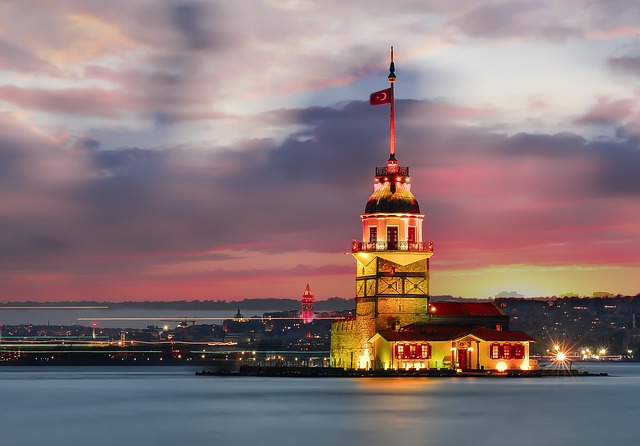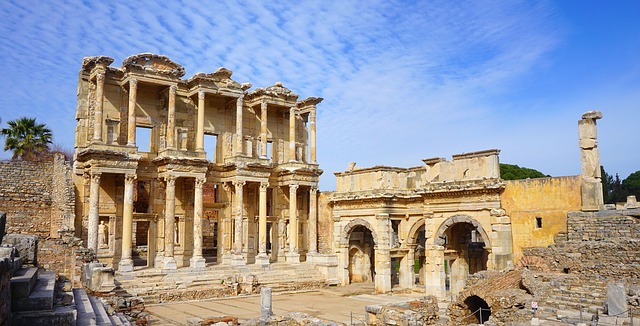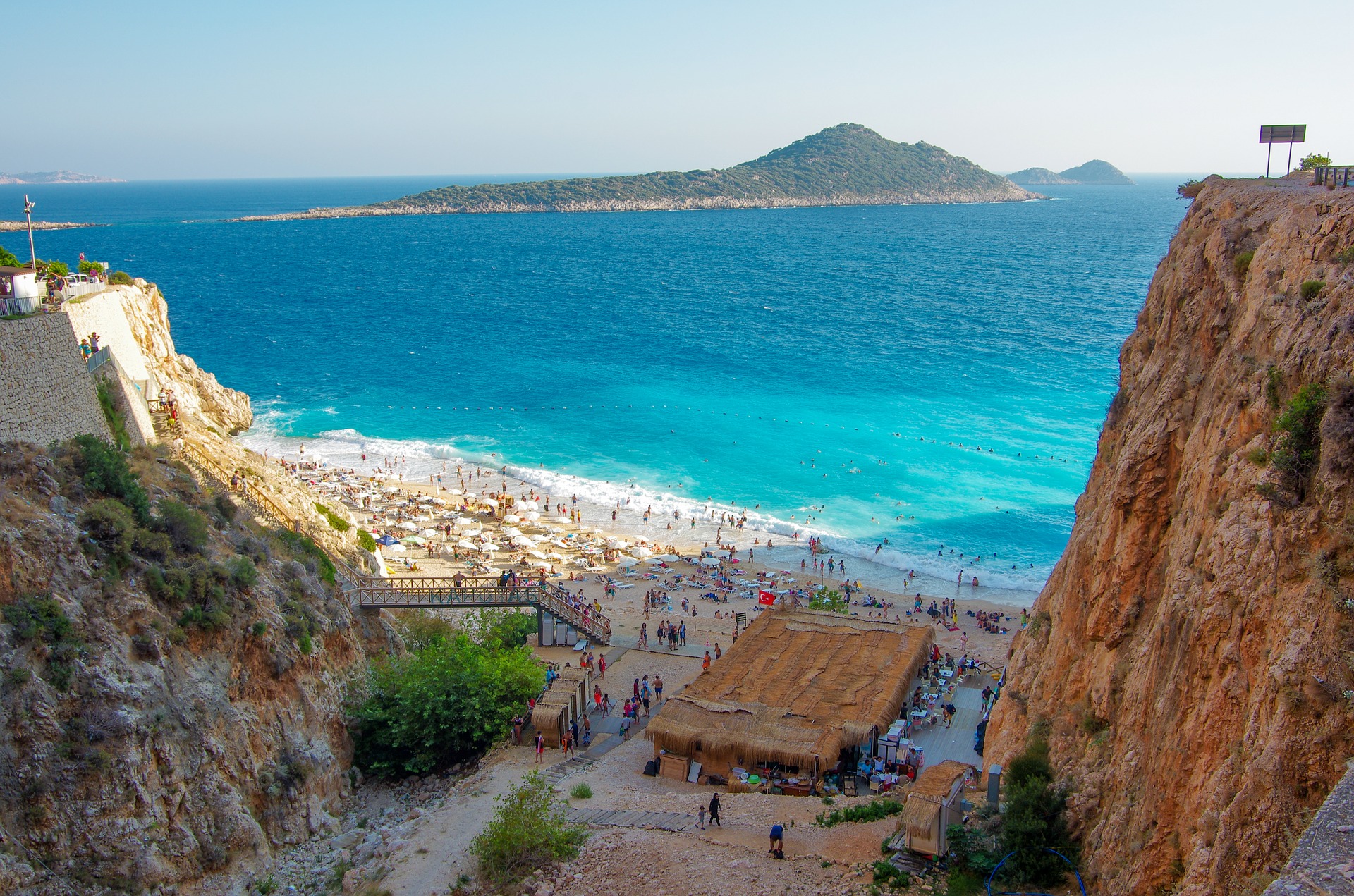Imagine Sharazade of the 1001 Nights dancing exotic belly dance in a mystical palace while you are eating Turkish delights, washed down with the aroma of strong Turkish coffee with your business partner while talking about a new business venture in the oldest and most exotic empire in the old world. How can we even begin telling you about Turkey?
Turkey is a jewel whose civilization is older than the ancient Greeks and has been part of the world's richest empires since the dawn of civilization. It's been the meeting point of the Persian empires and the nations of the East and the Western empires since the beginning of civilization.
Culturally, it is a Mecca that represents the migration of over 5000 years of human cultures merged in a city that has every major religion and society and nation living under one roof.
Economically, it presents as a powerhouse that links the trade routes of the Middle East and Central Asia, such as Azerbaijan, Kazakhstan, Mongolia, and Russia, with European centers such as Greece, Malta, and the Balkans.
But this is not why Mundo has chosen Turkey. Today, Turkey has become a foreign resident's utopia for doing business. It created a new citizenship by investment program. It has also developed very attractive investment incentives for foreigners via one of the lowest corporate tax regimes in Europe. Also, due to its size and independence from the United States and Europe, its banking system is the most vibrant and powerful in the Middle East. For Latin American, Venezuelan, Chinese, European, and African businessmen and family offices, Turkey presents an amazing location to have an operating company base. Here is why:
-Turkey provides immediate citizenship for all those who buy a property from $250,000. Such citizens receive unrestricted access to the Turkish economy. This is one of the world's best CBI programs. Mundo has partnered with Turkey's top development group to provide you with an array of excellent investment properties which bring you citizenship and residency by investment
-Turkish companies allow tax optimization, which is amongst the best in Europe at 20% corporate tax. Plus, in some cases, you can have zero corporate tax in free zones (Turkey has over 30 such free zones). Additionally, it has zero tax in branch and representative offices and subsidiaries.
-Turkey is militarily, politically, and economically independent from the United States and Europe. Therefore, its banking system is completely sovereign and not influenced by the political policies of these countries. It all means that Turkey determines its own policies about who can bank there. Of course, as a citizen, you have even more options.
-Turkey's economy is booming in the tourism, manufacturing, construction, and trade sectors. It is one of the fastest-growing and powerful economies in Europe, so investment and business in Turkey are profitable.
Some history about Turkey
Turkey has a magnificent assortment of historical, cultural, and natural majesties. Wherever you go, you will find extraordinary places filled with history. Its history covers a time frame of more than 4000 years.
In these 4000 years, Turks established states and empires independent from each other within a vast area of Asia and Europe. Some examples of it were the Great Hun Empire (established during the 3rd Century BC), the Uygur Empire (741- 840), the Great Seljuk Empire (1040- 1157), and many others.
Then, after several years the Ottoman Beylik quickly expanded throughout the fourteenth century and consequently became the Ottoman Empire. It doesn't matter if you love history or not, the chances you've heard about the Ottomans are huge. Considering they ruled over a vast territory on three continents for 623 years, since the Renaissance until the end of the First World War, it is more than normal that you've heard about them.
However, after the Turkish Republic arose in 1923, many of these historic characteristics were preserved and can be found almost anywhere in Turkey. For instance, Istanbul is an enigmatic metropolis alongside with its Old City, modeled by several cultures over the years, with a charming combination of architectural designs, acting as reminders of its detailed historical past.

Izmir, set on the Aegean Coast, is next on the list. The Greeks originally founded this archaeological wonder. From here, you can explore Ephesus, an ancient city awash with history, and home to the iconic The Great Theatre and Celsus Library, the best-preserved structure of its kind.

Major geographic centers
In this beautiful country, you will notice that the most densely populated area is found around the Bosporus in the northwest. Around 20% of the population lives in Istanbul, and except for Ankara, urban centers remain small and scattered throughout the interior of Anatolia (the part of the country located in Asia).
More specifically, around 5.190 million people live in Istanbul. It is followed by Ankara with 5.118 million people, Izmir, with 2.993 million. Finally, the other three main cities by population are Bursa, Adana, and Gaziantep.
It is known that an overall pattern of peripheral development exists, particularly along the Aegean Sea coast in the west and around the Tigris and Euphrates River systems in the southeast.
Therefore, you will find that businesses are more common in these areas as well as trade activities.
Government
Turkey is a presidential republic located in Western Asia and Southern Europe. It has a surface of 783,562 km2, which extends over the entire peninsula of Anatolia (756,688 km2) and Eastern Thrace in the Balkan area (23,169 km2) and it has a population of 82,033,882.
Overall, Erdogan's government has brought significant political and economic stability inf the country. To a large extent, this stability has been the reason for the economic recovery process known as the "Turkish miracle" (2002-2017). The political stability and economic growth registered in Turkey since the AKP came to power is one of the characteristics that make this country one of the most attractive destinations for medium-risk investors.
Since the AKP came to power, the government has used different cards to show Turkey as an attractive investment hub. First, Turkey's ability to serve as a bridge between civilizations, exploiting, precisely, its political and economic stability, in comparison to the precarious situation of its neighbors.
Nonetheless, the civil war in Syria has generated a major refugee crisis. Turkey has paid a large part of the costs of this conflict, as the country is home to 3.7 million Syrian refugees. Some of them were taken due to a migration agreement with the EU in 2016, which helped to reduce the influx of refugees into Europe. This, claims about the government autocratic tendencies, and the ongoing conflict with the Kurds, generated high social costs for the Turkish government and citizenship.
Living in Turkey as an expat
As an expat living in Turkey, you will get the opportunity to taste a rich foreign culture. Also, it has everything you need to live in all the environments you want. Thousands of kilometers of coastline to the Mediterranean Sea, an extraordinary climate of the temperate oceanic type, with hot summers and cold winters, mountains, and deserts to drive over.

One of the best advantages of living in Turkey is its people. They are citizens who are, for the most part, gentle, cultured, and educated. And so, they have internalized in their culture the role of being a bridge between civilizations. Thus, no matter where you come from: North or South, East or West, the Turks will welcome you with open arms and a smile.
In Turkey, you will find the best of both worlds: the fascinating details of a tradition that goes back several millennia and the modernizing impulse of an extraordinary country that wants to dine at the same table with the leading world powers.
Lifestyle
In a middle-class neighborhood in Istanbul, a Turkish citizen can drive a new, of-the-year, Ford vehicle over Pirelli rubber, pay for his two children's private schooling, and still have money left over for a summer vacation to the Mediterranean. With a population of 82 million and 37 million visitors a year on average, two words can define the lifestyle in Turkey: dynamism and diversity.
In the last two decades of the "Turkish miracle," the quality of life of the Turkish people has increased significantly. After decades of perpetual crisis, the country has become one of the world's leading economies, respected around the globe.
This has had a significant impact on the lifestyle of its people. Its high per capita income and the fact that 52% of people aged 15-64 are in paid employment in the country (71% men and 32% women), means that Turkish citizens have a thriving domestic market where they can consume the best services from the world's most recognized brands.
In turn, Turkey is a very cultivated country. About 800,000 people graduate from university every year. This, added to its rich history, makes Turkey an important center for the arts, science, and culture.
Even as it has a Muslim majority, Turkey enjoys most of the Western amenities that will allow you to fall in love with this country.
Turkey's strategic geographic and geopolitical location
Turkey is known as a bridge between two continents. Also, it is located in three biogeographical regions: Anatolian, Mediterranean, Black Sea region, and their transition zones. Therefore, its climatic and geographical features change within short intervals of space due to the country's position.
Its location offers a great biological diversity, which can only be compared to that of a small continent. Be it forests, mountains, steppe, wetlands, coastal and marine ecosystems, Turkey has them all. Also, this location has allowed Turkey to be a part of the EU Customs Union since 1996. This gives the country access to a total of 945 million consumers in 27 countries with European Free Trade Agreements. Due to its highly developed shipping facilities, Turkey has direct deliveries to most EU countries.
Additionally, it has access to three different seas, ports, airports, and a great capacity of mobility between Asia, Europe, and America. Turkey has direct access to 16 time zones, as well as 1.6 billion potential consumers in Europe and Central Asia within a four-hour flight.
Foreigners doing business in Turkey
According to the World Bank's Doing Business Index, in 2019, Turkey was one of the few countries that made the most profound changes to its tax system to generate incentives to do business.
Turkey is the second-largest reformer among OECD countries in terms of its FDI restrictions since 1997 (OECD FDI Regulatory Restrictiveness Index 1997-2017), which has led to the establishment of approximately 65,500 companies with international capital by 2018.
For instance, the corporate income tax was reduced from 33% to 22%. Also, there are tax advantages and incentives in Technology Development Zones, Industrial Zones and Free Trade Zones, including partial or total exemption from corporate income tax, a subsidy for corporate social security expenses and the allocation of land.
Broadly, the Turkish government offers a wide-ranging investment incentives program with a far-reaching number of instruments that help to minimize the upfront cost burden and accelerate the returns on investments.
These incentives may also be tailored for projects in priority sectors classified as key areas for the transfer of technology and economic development. Besides, the Turkish government provides generous support programs for R&D and innovation projects, employee training initiatives, and exporters through various grants, incentives, and loans.
We can sum up the incentives for FDI in Turkey as it follows:
Turkey's repeated attempts to join the European Union have helped to establish European regulations and trade standards, which have substantially liberalized the economy.
Because of its demographic vitality, the country has a developing young middle-class population with increased purchasing power and orientation towards consumption.
The relatively low cost of labor
Turkey has a strategic geographical location that allows it to be a regional hub between Europe, Asia, and the MENA economic zone.
The Turkish market counts 70 million consumers
If you want to know more about doing business in Turkey, check out the website of the Türkiye Promotion Group.
Major economic facts and business area
The GDP of Turkey in 2019 was US$ 754.8 billion, with a population of 82.6 million people, according to the World Bank. Among its socioeconomic indicators, it has a per capita income of US$ 27,956, a life expectancy of 78.50 years, and a Human Development Index of 0.791 (position 64 worldwide). By 2019, its economic growth rate stood at 1.8% of GDP, but the GDP per capita experimented a continued increase from US$ 10,685 in 2003 to US$ 27,956 in 2019.
Since 2000, Turkey's economic and social development performance has been impressive, leading to increased employment and incomes. All of it has made Turkey an upper-middle-income country. However, in the past few years, growing economic vulnerabilities and a more challenging external environment have threatened to undermine those achievements.
Regarding its economic sectors, textiles and apparel were the largest pieces of Turkey's US$32 billion in exports last year. The country for years served as a nearby, low-cost source of fabrics for European firms of the apparel industry. In addition to this, Turkey is also a significant grower of cotton, which creates value along the supply chain and has encouraged its strong economic development.
Besides this, Turkey is wealthy on natural resources such as boron, coal, iron, zinc, and chromium, copper, silver. The exploitation of these resources is still under-developed and presents many opportunities. This could also lead to opportunities in heavy industry.
About the tourism sector, Turkey receives more than 37 million visitors a year, making it one of the world leaders. Greater investment in infrastructure and an aggressive country brand campaign could position it as one of the countries with the highest number of annual tourists in the world.
At the same time, Turkey is home to several of the most successful and largest foreign companies in the world market, such as Ford, Fiat, Toyota, Mercedes-Benz. Pirelli, among others. One of the reasons why these companies are interested in bringing their headquarters to this country is due to the qualified labor force and the enormous percentage of the country's active population.
Investment potential
The recent process of liberalization aims to attract the highest amount possible of foreign investment. Turkey has enormous investment potential. Even as the thirteenth largest economy in the world, there are still untapped opportunities.
The services industry, which already accounts for two-thirds of the Turkish economy, is the most attractive sector in which to invest. Also, there are sectors such as tourism and communications. The possibility of technological innovation opens the window to attract investments in Turkey's robust and booming industrial sector.
Finally, it has access to the European Union market, a vibrant internal market with active personnel and a highly qualified workforce, mobility, and relations with the major powers on five continents, juicy tax incentives, including tax breaks and exemptions in free zones. All this, combined with a recent process of modernization and liberalization towards policies closer to the free market and further away from state intervention in the economy, makes Turkey a fantastic destination for investment and good business.
Today Turkey does not need a new miracle. It just needs modern investors with vision and ambition, capable of investing and doing good business in a country that, after briefly stumbling, has made significant changes to open up to the world.
$170,000
$2,500,000
$350,000
$1,400,000
$395,000
In the 21st century, the concepts of Nevis trust, asset protection, and wealth planning are almost s...
Very few programs are as friendly to retirees as the one we're featuring in this article. With an ea...
Everyone who sees property purchase as an investment strategy should consider pre-construction Panam...
In Panama, the real estate market is significant because of its convenient costs and the permanent r...
When discussing territorial taxation, Panama comes up. Nevertheless, here and in any country, it's i...
Many embark on the journey that is going from Panama residency to citizenship, and this is quite an ...



.png.small.WebP)


.webp.small.WebP)


.png.small.WebP)
